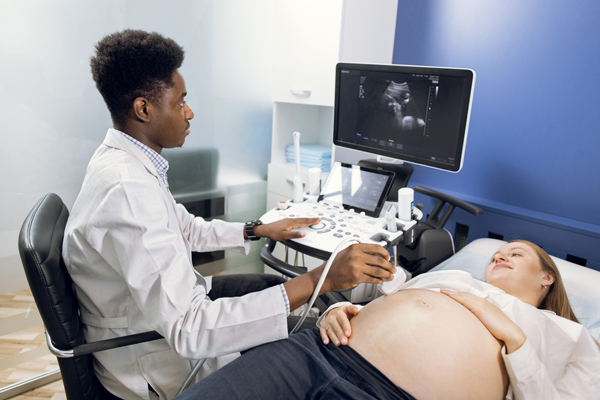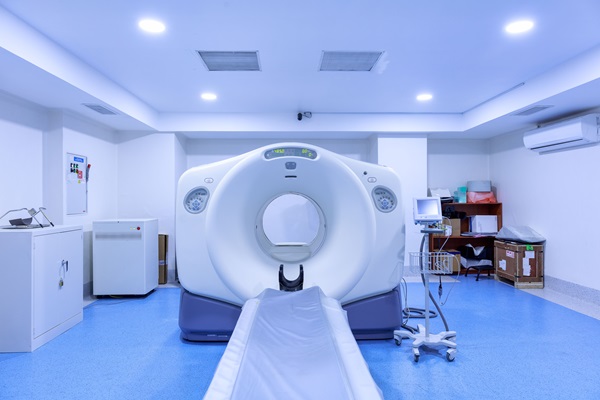Why You Might Require an Ultrasound

There are many reasons why urgent care and primary care doctors order ultrasounds for their patients. Pregnancy is just one of them. Ultrasound technology uses sound waves above the human hearing range to send pulses into tissue and create an image from the echoes that result. There is no radiation when you have an ultrasound. This technology can be used to diagnose or collect data on various conditions.
Pregnancy ultrasounds
The most well-known application of ultrasounds is their use in pregnancy. If you are high risk, you may have an early sonogram (before 12 weeks) to make sure the pregnancy is in the right place and measuring on time. If you are not high risk, you will likely have your first ultrasound around the start of the second trimester and an anatomy scan around 20 weeks to check for fetal abnormalities.
If you are pregnant and visit an urgent care center due to troubling symptoms such as bleeding, severe abdominal or uterine pain, or excessive vomiting, the doctor will likely order an ultrasound to check that everything is normal with your pregnancy. If you are in labor, an ultrasound can also show the baby's position, such as head-down or breech.
Another reason for an ultrasound during pregnancy is to measure your amniotic fluid and check on the baby's movement in the third trimester as part of routine non-stress tests and monitoring.
Pregnancy sonograms should not hurt, though you may feel a little pressure on your belly. They do not harm the fetus. They are usually external, though if you are very early, you may need a transvaginal ultrasound in which the probe goes inside your body.
Other ultrasounds
A general ultrasound examination can be helpful for identifying a source of pain. The technology allows a doctor to see organs and tissues that may be damaged or have unusual swelling. In particular, an urgent care doctor may use ultrasounds to visualize problems with your:
- Gallbladder
- Thyroid
- Prostate
- Joints
- Blood flow
- Tissue
An ultrasound is most often noninvasive, with a probe used on the outside of your body after a gel is applied to the area. When you visit an urgent care clinic, a portable ultrasound machine can be rolled into the examination room, or you may go to a special room for the ultrasound. Either way, an ultrasound is generally faster and more convenient than other imaging technologies. Your primary care doctor can follow up on findings made at an urgent care.
Frequently asked questions about ultrasounds
Time to go over the answers to some of the inquiries patients might have concerning ultrasounds for pregnancy and other issues.
How is an ultrasound performed?
An ultrasound exam usually takes place in a doctor’s office or outpatient clinic. The patient lies on a table while a gel is applied to the skin. A hand-held tool called a transducer is moved over the gel. The transducer sends out sound waves that reflect off of body structures. The reflections are converted into electrical signals that create images on a computer screen.
How long does an ultrasound take?
The length of time an ultrasound takes depends on the purpose of the exam. A basic abdominal ultrasound usually takes less than 30 minutes. A more complex exam, such as one involving the heart, may take 60 minutes or longer.
Are there any dangers to having an ultrasound?
Ultrasounds are generally safe and do not use ionizing radiation (as used in X-rays). However, ultrasounds may produce thermal or acoustic energy that could cause tissue damage. There are no known long-term risks from ultrasound.
What should I do before an ultrasound?
Patients may be asked to drink water and avoid urinating for a while before the exam. This is done so that your bladder is full, making it easier to see some organs. They may also be asked to eat a light meal if the exam involves the abdomen.
What happens after an ultrasound?
After the exam, you can return to your normal activities. If you had gel applied to your skin during the exam, you can remove it by washing it with soap and water. You will generally receive the results of your exam within a few days. Your doctor will discuss the results with you and explain what they mean.
Ultrasounds are a diagnostic tool
Ultrasounds are very useful in the diagnosis of many conditions, including unexplained pain. They can also be used to monitor tumor growth or inflammation. When you visit urgent care, the doctor may make use of an ultrasound to determine how to move forward with treatment. If you have issues with bones or your lungs, the doctor may order a different type of test, such as an X-ray or CT scan.
If you are experiencing pain anywhere in your body or are pregnant and have unusual symptoms, contact urgent care. You may need an ultrasound to further diagnose your condition.
Request an appointment here: https://tx-urgentcare.com or call Texas Urgent Care & Imaging Center at (832) 941-1894 for an appointment in our New Caney office.
Check out what others are saying about our services on Yelp: Read our Yelp reviews.
Recent Posts
X-rays are popular tools medical professionals use to diagnose a wide range of health conditions quickly and safely. They allow these professionals to see inside the body without invasive procedures, making them invaluable in urgent and primary care settings. Whether identifying fractures, monitoring chronic conditions, or detecting abnormalities, X-rays are critical in ensuring timely and…
A CT scan, or computed tomography scan, is a diagnostic tool that provides detailed images of the body’s internal structures. This non-invasive procedure helps medical professionals diagnose and monitor various conditions, from injuries to chronic illnesses. Knowing what to expect during a CT scan can ease concerns and prepare patients for a smooth experience.A CT…
If you work in public transportation, you may need to have a DOT drug screening. The Department of Transportation (DOT) regulates this test and requires it for you. You might be wondering what this test is like. Keep reading to learn more.Congress passed the Omnibus Transportation Employee Testing Act in 1991. Congress knew that the…
Walk-in clinic provide convenient, accessible health care for non-emergency medical needs, making it an ideal choice when immediate attention is necessary. Understanding when to visit a clinic can help patients save time, avoid unnecessary trips to the emergency room, and receive quality care for their health concerns. These clinics handle various issues, offering fast, professional…


